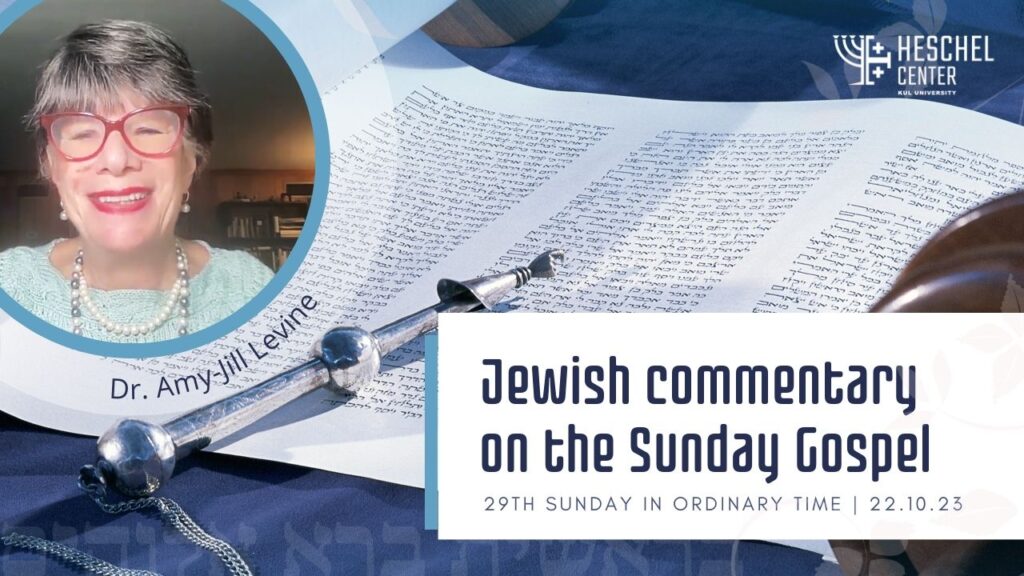“While many Christians, influenced by the Gospel of Matthew, regard the Pharisees as legalistic hypocrites, Jews consider them to be respected teachers and innovators who helped Jews to embody their traditions more fully,” writes Dr. Amy-Jill Levine, professor of New Testament and Jewish Studies, the first Jewish woman to teach the New Testament at the Pontifical Biblical Institute in Rome, in a commentary for the Heschel Center of the Catholic University of Lublin for Sunday, October 22.
Many Christians have a negative view of the Pharisees. Still, in Jewish culture, as Dr. Amy-Jill Levine points out, they are considered “respected teachers who made the egalitarian move of extending priestly sanctity to all Jews.” In Jewish culture, they are also recognized as innovators. Referring to the words of Pope Francis addressed to the Pontifical Biblical Institute in Rome in 2019, the professor of New Testament and Jewish Studies points to the need to understand the mentality of the Pharisees better in order to understand their attitude.
Dr. Amy-Jill Levine notes that there are numerous passages in the Gospel of Matthew where the Pharisees are portrayed in a negative light. For example, “in chapter 22, Matthew changes Mark’s admiring scribe who asks Jesus about the greatest commandment into a malicious Pharisee who seeks to trap Jesus with a difficult question.”
Similarly, in the Gospel for this Sunday, the Pharisees try to “entrap Jesus in speech” (Mt 22:15) by asking him an uncomfortable question about the politics of Rome: “Is it lawful to pay the census tax to Caesar or not?” (Mt 22:17). Contrary to appearances, it is also a theological question. Well, based on passages from the Old Testament, the Jewish tradition continues forbidding the counting of the population. “One explanation is that taking a census is forbidden since God promised Abraham that his descendants would be as numerous as the stars in the heavens. Therefore, counting is impossible,” explains Dr. Levine.
Besides, the prohibition against counting people in Judaism also has a pastoral application. ”A census reduces people to numbers, to commodities, to faceless bodies. Such counting marked the Shoah – the Holocaust; it marks death counts in wars, disasters, and pandemics. Moreover, the census determined both taxation rates and how many people could be conscripted for the military; it thus threatened the people both economically and physically,” said Dr. Amy-Jill Levine.
Commenting on Jesus’ response, “Repay to Caesar what belongs to Caesar and to God what belongs to God” (Matthew 22:21), Dr. Amy-Jill Levine writes that “Jesus asks us to determine what, and who belongs to Caesar: the coin with his image? The land his troops occupy? The lives of the people in his empire?” In her opinion, Jesus’ words draw the attention of the listeners to the fact that in the end, everything belongs to God, as we read in the Psalm: “The earth is the LORD’s and all that is in it, the world, and those who live in it.” (Ps 24:1).





 (EN)
(EN)
 (ES)
(ES)
 (IT)
(IT)

